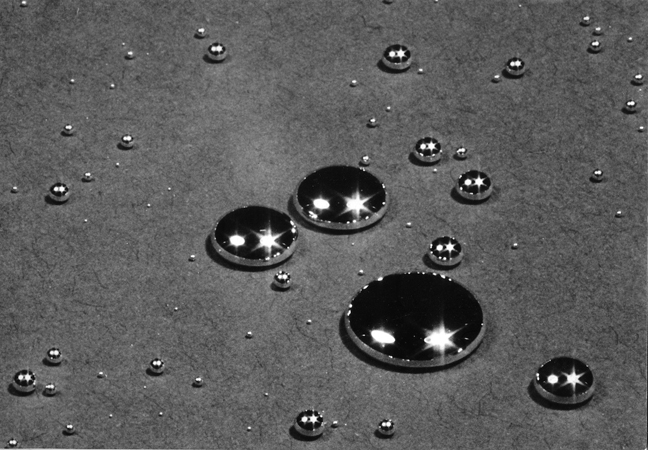In a fascinating new article published in Scientific American, Ashutosh Jogalekar takes a look at the insanely bizarre properties of liquid mercury, a metal which has bewildered mankind for centures. Jogalekar writes: “[It] is a question that every child since antiquity has asked: Why is mercury liquid at room temperature? Mercury – the only metal with this property – has beguiled and fascinated men for centuries; a glittering substance that flows with studied gravity, supports the weight of coins, magically seems to dissolve other metals and resists all attempts to scoop it up. A substance that can aid health when calibrated inside a thermometer and can kill when it accumulates in living tissues. But the one quality of mercury that is apparent to everyone who has even the slightest acquaintance with it is its liquid nature. Why is this so? It turns out that sometimes simple observations in science can have complicated although very interesting explanations, and this is one of those cases. Fortunately the crux of the matter is simple, and it has received its most complete and satisfying treatment in a recent paper published in the journal ‘Angewandte Chemie’. But first let’s go back to the basics. Mercury is a metal, which means that it occupies the middle of the periodic table along with other metals like gold, zinc and cadmium. In fact it is in the same group as zinc and cadmium, and yet it couldn’t be more different from them. Zinc and cadmium are not liquids at room temperature and they crystallize in a different form from mercury. In addition mercury is right next to gold, and yet their properties are utterly dissimilar.” You can read the full story by visiting ScientificAmerican.com.
SEE ALSO: NASA Releases Very First Photo Taken From Orbit Above Mercury
SEE ALSO: Watch IBM’s Stop-Motion Short Film “A Boy And His Atom” Using Atoms As Pixels
SEE ALSO: Building A Fusion Sun On Earth: Go Inside ITER, The Most Expensive Science Experiment Of All Time



